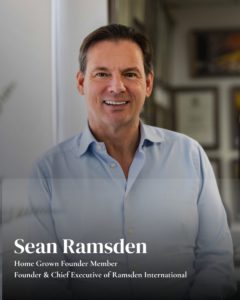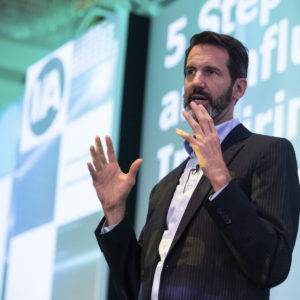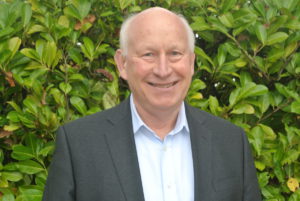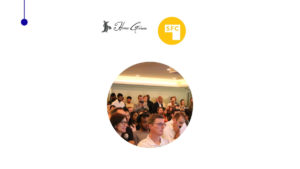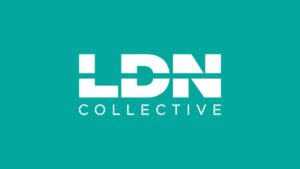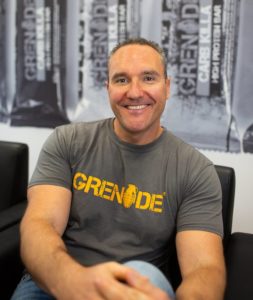Scale Up Effectively
It was Andy Grove at Intel who said that, “More companies die from indigestion than from starvation.”
Coming out of the Covid-19 pandemic, that may be what we’re on the cusp of right now. We’re seeing supply chain challenges. We’re seeing a battle for talent in the marketplace.
This is when the fundamentals, discipline and focus are most critical.
So that’s what we’re going to do in this piece. No fancy stuff – just the clear Scaling Up fundamentals that should be part of your organization as we all rush into the post-pandemic world.
What do you need to have in your toolbox to accelerate growth through 2021 and beyond?
Here’s what I recommend.
Establish your BHAG and go after it
What’s your company shooting for in the next decade or so?
This isn’t just a mental exercise. It’s important that you put it out and affirm it. If you’re the CEO, the Purpose and the BHAG are your decision to make.
Think through your BHAG at least mentally. What would it take for you to 10x what you’re already doing? It could be in revenue or profitability or the service that you’re providing.

To consider what it would take to double the business means thinking about what you’re doing today and improving that by a little bit tomorrow. But to 10x requires you to graduate to a whole new level of thinking.
So what is your Big Hairy Audacious Goal as we start coming out of this mess?
Know your numbers
You wouldn’t think of going to a sporting event without knowing the score.
With your business, it’s no different. You want to be front and center with your data.
You want your team spending as much time and interest in how you’re doing as these other metrics that are literally flooding their personal devices.
Set your purpose
The battle for talent is real. I came across a recent piece that showed that 57% of employees are ready to move to another company.
You are looking for a company purpose that is more important than making you rich. It’s got to touch the hearts of your employees. When you do, that’s when you release energy.
Go in with a winning mindset (don’t play to lose)
Mindset is important – it’s easy to feel exhausted right now. But are you playing to win or are you playing not to lose?
It can be hard to focus on getting across the finish line. But the research is clear: If you start playing not to lose, then 86% of the time you will lose.
An ambitious goal creates much greater energy than an obtainable goal (or a goal that’s downright crazy). Don’t go all out. But you still want to land on the ambitious side.
Always be learning (gather quality intel)
What is one of the key fundamentals that has won all markets and all wars? It’s first-hand intel.
You want to be talking to all customers and all employees. Make sure that all employees are being heard and contributing their ideas.
If I were to be precise about where you – the leaders of the company – should be spending your time, I would say this: Your #1 KPI is Talk Time. How many hours are you in conversation with people to learn generally or learn about them personally? It doesn’t have to be about business. Making a connection is enough.
This is the time to break bread with everyone you can this summer or winter.

Recently, Sarah Blakely of Spanx, the youngest self-made billionaire in history, was asked how she did it.
In a nutshell, she said that she spent most of her time in the store so she could see what was working and not working.
Hubert Joly, the CEO who turned around Best Buy, went out and spent time in the Best Buy stores before he even stepped into the role.
He also placed first on the agenda of all their leadership meetings, “What are we hearing from customers and employees?” When I read this I almost fell over because it’s the same thing we’ve been preaching!
Whoever can learn quickest from the market, decides and then acts on it.
Decades ago, I was called in to do some work for a 70-person accounting software startup. After spending just a day in their company, I knew then that they would have the #1 company in their space – which they are today.
The reason I knew this is because of 2 things. First, the team that did the programming was also writing the software. Second, every one of their software engineers had to spend half a day a week working in the technical help center, right next to people answering technical questions and problems.
Fundamentally it is about shaking hands, getting face-to-face, having conversations and having this talk time with your teams.
Make your 4 Decisions
Let’s come back to the fundamentals – the 4 Decisions that every company needs to get right if they want to scale.
The 4 Decisions are:
- People
- Strategy
- Execution and
- Cash
I won’t go into all in this piece, but I’ll touch on the ones I’d like to highlight for this year.
If there’s one thing I want to emphasize, it’s this: The key is to do it differently from the competition.
Hire, develop and retain People strategically
Let’s start on the People side – who to pursue. If you get the right team, your life is easy. If you get the wrong team, your life is miserable.
Start with the basic tool – the Functional Accountability Chart (FACe tool) – which lists out the roles you need on your team.
My own team pushed me to bring in a Chief Marketing Officer, so I brought in our newest member, Abby Brown, to lead that function. Just in 2020, we almost 10xed our reach – and that was in virtual. There’s no way we could have done it if I did not have the right people on the bus.
To find the ideal players for your team they have to pass 3 tests:
- They fit your culture
- They don’t need to be managed
- They “Wow” you
This should help you get the right people, doing the right things, right.
The other fundamental is keeping your team energetic. Good leaders play checkers. Great leaders play chess.
When it comes to energy levels, people get demotivated by 2 things:
- You make them work with less than A players
- You make them do things that don’t give them energy
Try this exercise with your team. If someone comes to you or your team and they’re concerned about their energy levels and motivation, give them a Love/Loathe list and have them fill it out. In most cases, you’ll find that 25% of the stuff ending up on that list doesn’t even need to be done! Those tasks can be delegated or removed.
Jobs are like hallway closets for garages – you have to clean them out every once in a while.
I saw another version at an accounting firm that had just lost a key person. The CEO went into the department and handed out 3-6 cards to the team. She had them write down 3-6 activities on each card that keep them busy all week and said, “Every one of you gets to keep 3 of those cards, and then we’ll throw the rest of the cards in the middle of the pile and dole them out.”
Know where to find your A-Team
The quintessential A-Team is made up of a ragtag group of ex-Special Forces soldiers banding together to pursue a goal. That’s the diversity we want to drive in our organizations.
Make sure you have a fishing hole that you can look to for talent.
Entrepreneur Gene Brown of the City Bin co. needed to get people working in the back of his garbage trucks. He found that he could recruit out of these tough, rough gymnasiums in Ireland. The gym goers here saw themselves as athletes and Gene offered them this opportunity to workout while getting paid. He scaled that business from 16 employees to 1600.
Keep your Strategy simple, focused, and clear
Can you state your strategy simply?
Here we come back to the fundamental Vision Summary, which can be split up into 3 sections:
- Core values
- Purpose
- Brand promises
If you don’t get the vision right, you’ll waste the next several years of execution.
The only other thing I want to share in strategy is this fundamental: the riches are in the niches.
We’ve got to get back to being laser-focused – you want to follow the winds of the market. You don’t want to go after more than 10% of a broad market. That’s the fundamental you’ve got to get back to in strategy – what is the one thing that we can be best at?
Simplify Execution and then repeat, repeat, repeat
With Execution, it is all about relentless repeatability. Here’s an example.
Horizon Services, a truck technician business, has its technicians repeat specific habits when they service a customer.

Image Source: Horizon Services
The truck is always parked on the opposite side of the street with the logo visible from the customer’s door (this signifies trust.) Drivers are instructed to knock on the door rather than bring the doorbell (friends knock on the door, strangers ring the doorbell). When the door is answered, the drivers are to step back two steps. It’s these little things that they do consistently in the organization that elevates their execution.
That’s why relentless repeatability is critical. We have the Rockefeller Habits checklist for this. Grab a copy of it, and go through it.
Scaling up requires discipline and focus. And that comes down to 3 disciplines:
Priorities – If you’re not scaling it’s because you have too many priorities or you have the wrong priorities. See if what people are focused on is aligned around the right priority.
Data/Metrics – Qualitative data is important to feed. That requires you to step back and have a little quiet time for thinking – it really comes down to being clear on what this is. Pick 1 thing every quarter. Hey, if you’ve got a month left, try something for that month.
Meeting Rhythms – You want to get in a room and talk about your priorities and your data on a consistent basis.
Balance positivity and accountability with peer support
Maintaining a positive and supportive environment – while also emphasizing accountability – can be a challenge. A lot of CEOs and business owners have 1-on-1s with their team, which takes a tremendous amount of time.
But you can also use the most powerful tool that’s ever been developed: Peer pressure.
Peers will work harder for each other than they will for you, the boss. They care more for their peers than you, and they learn more from their peers than you. The team will hold each other accountable. The team will spit out a non-performer. You’re not going to have to do it. Let the transparency of the data speak for yourself. Every culture has sports teams. If they can handle their transparency, you can too.
Peer pressure is the key.
Put the right teams in the Daily Huddle
The CEO is in the huddle with their direct team. And then those executives are in with their teams. Nobody should be in more than 2.
Conclusion
At the end of it, all of this requires a bias for action.
That’s how it’s done. Set your BHAG. Then break it down to 5-year goals, the 1-year goal, and then your next 90 days. And you’ve got to communicate about it every day.
So, what’s the one metric that you have to move?
© Written by Verne Harnish for The Growth Institute
Related articles




A one-stop-shop for entrepreneurs and investors. What really sets Home Grown apart is their members’ events which provide access to valuable insights and support scaling founders on their growth journey.Richard Farleigh, Entrepreneur and Former BBC Dragon's Den
It’s always a delight to meet, network and entertain amidst the generally relaxed vibes that radiates throughout Home GrownGladstone Small
Home Grown is immersed with an overflowing energy, unrivalled facilities yet the club has a certain uniqueness.Luke Reed
What a special delight and home from home! I stay here whenever I come to London and their Scale-up events are on the money.John Courtney
We are all crying out for opportunities to bump into other people, to spark ideas off them that make us happier, more fulfilled and more imaginative: Home Grown is a forum for just this creative serendipity.Tas Tasgal
Home Grown is more to me than just my office in London. It’s a community. It’s a place to network with other business people. But most of all it’s got that super friendly and positive vibe that you just can’t wait to get there each time.Neil Thompson




















